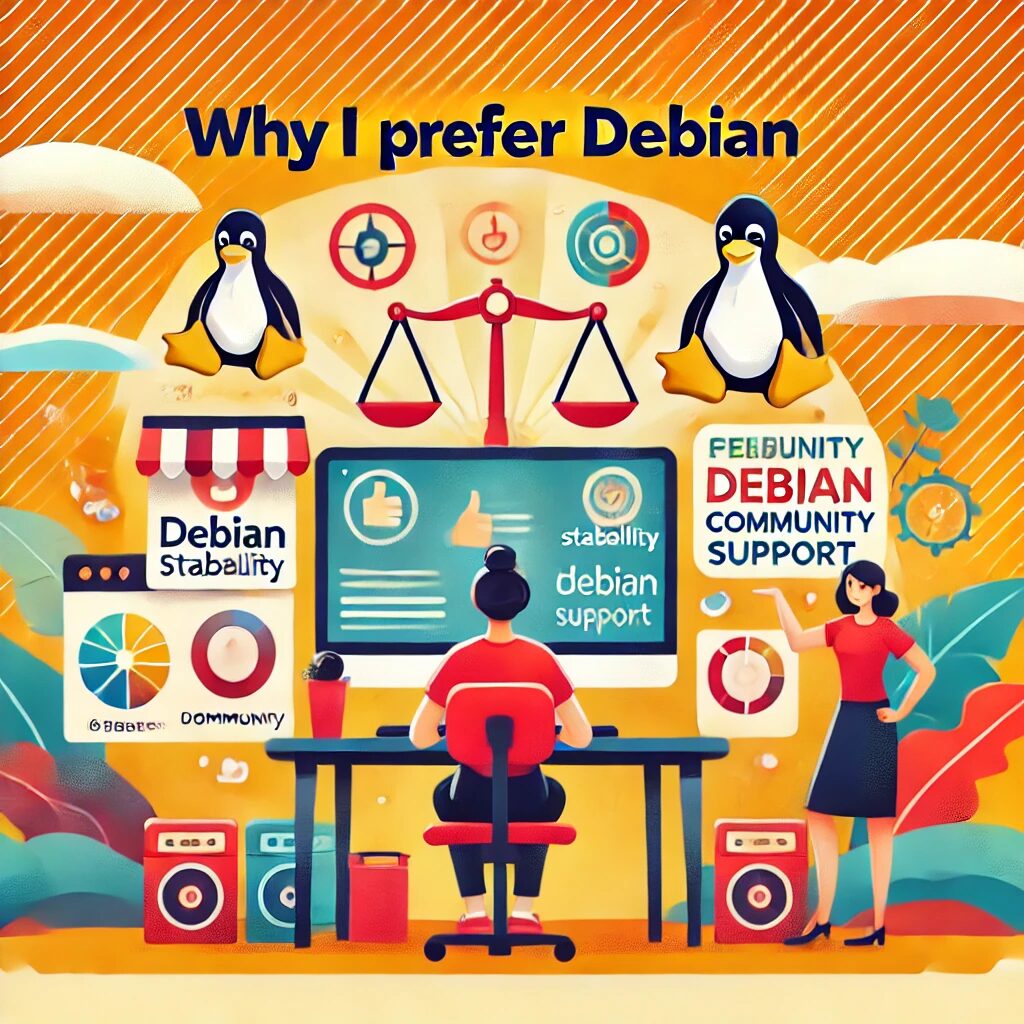Why Debian is My Go-To Linux Distribution for Most Implementations
As a seasoned Linux professional, I’ve had the privilege of working with various core Linux distributions, each with its unique strengths and use cases. However, when it comes to choosing a distribution for most implementations, Debian stands out as my go-to option. Here’s why:
Stability and Reliability
Debian is renowned for its stability and reliability. The distribution undergoes rigorous testing before release, ensuring that each version is robust and free from critical bugs. This focus on stability makes Debian an excellent choice for servers, production environments, and any system where uptime and dependability are paramount.
Extensive Package Repository
Debian boasts one of the largest software repositories among all Linux distributions. This vast repository includes thousands of free and open-source software packages, making it easy to find and install the tools needed for any project. The APT package management system simplifies software installation, updates, and maintenance, enhancing efficiency and productivity.
Strong Community and Support
The Debian community is one of the oldest and most active in the Linux ecosystem. This extensive community means there is a wealth of documentation, forums, and mailing lists available for support. Whether you’re troubleshooting an issue or seeking advice on best practices, the Debian community is an invaluable resource.
Security
Security is a critical consideration in any implementation, and Debian excels in this area. The Debian Security Team works diligently to provide timely security updates and patches, ensuring that systems remain secure against vulnerabilities. The stable release cycle means that security updates are applied in a controlled manner, minimizing the risk of introducing new issues.
Flexibility and Customization
Debian’s versatility is another reason for its widespread adoption. It supports a wide range of hardware architectures and can be customized to suit various needs, from minimalistic installations to full-fledged desktop environments. This flexibility allows me to tailor Debian to meet specific requirements, whether for lightweight IoT devices, powerful servers, or everyday desktop use.
Long-Term Support
Debian’s long-term support (LTS) ensures that each release is maintained for an extended period, typically five years. This LTS model provides a predictable and stable environment, reducing the frequency of major upgrades and allowing for more strategic planning in enterprise environments.
Compatibility and Integration
Debian’s adherence to open standards and its extensive package repository ensure compatibility with a wide range of software and hardware. This compatibility makes it easier to integrate Debian systems with existing infrastructure, whether in cloud environments, virtualized setups, or traditional on-premises deployments.
Conclusion
While there are many excellent Linux distributions available, Debian consistently proves to be a reliable, flexible, and secure choice for most implementations. Its stability, extensive package repository, strong community support, and long-term viability make it an ideal platform for a wide range of use cases. For these reasons, Debian remains my preferred Linux distribution, trusted to deliver the performance and dependability required in professional environments.




